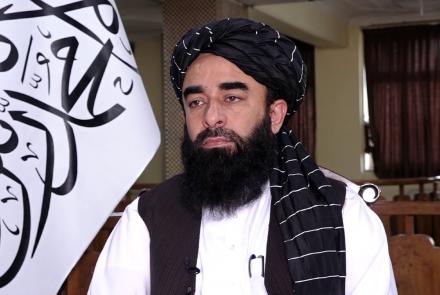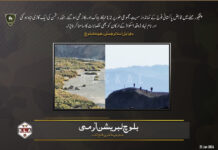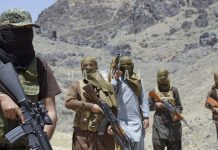Islamabad, May 31: Rejecting Pakistan’s claim of “proof” that the Bisham terror attack was masterminded in Afghanistan, the Taliban has said the issue has nothing to do with Kabul and Islamabad should ensure its own security.
The Islamic Emirate went further and accused Islamabad of attempting to create distrust between Kabul and Beijing.
Zabihullah Mujahid, the spokesperson for the Islamic Emirate, in response to the Pakistani Ministry of Foreign Affairs’ statement about the perpetrators of the terror attack that killed six Chinese engineers in Pakistan, said that this issue has nothing to do with Afghanistan and Pakistan should ensure its own security.
Pakistan Foreign Office spokesperson Mumtaz Zahra Baloch said that detailed information about the perpetrators of the March 26 terror attack has been shared with Afghanistan.
She emphasized that Pakistan is seeking the extradition of the terrorists involved in the attack. She stated, “We have provided the Afghan authorities with solid evidence regarding the individuals behind the Besham attack and have demanded their immediate arrest and extradition.”
Zabihullah Mujahid, spokesperson for the Islamic Emirate, said that the Afghan government has official interactions with China, and Beijing has been striving to invest in various sectors in Afghanistan.
According to Mujahid, the relationship between Kabul and Beijing is expanding with each passing day.
The spokesperson for the Islamic Emirate said: “The relationship between Afghanistan and China is in a very good state. We have official interactions and exchanges, especially with China making significant efforts to invest in Afghanistan’s economic sector.”
His statements come ahead of Pakistan PM Shehbaz Sharif’s upcoming visit to Beijing from June 4-8, during which the China-Pakistan Economic Corridor project will be discussed and the issue of the safety of Chinese nationals working on the project in Pakistan.
The Pakistan Foreign Office, in a recent statement, said Khurram Agha, a top bureaucrat at the Interior Ministry, travelled to Afghanistan on the special directions of Prime Minister Shehbaz Sharif, and held a detailed meeting with Interim Afghan Deputy Minister for Interior Muhammad Nabi Omari with whom he shared the government’s findings on the Bisham attack.
The FO statement said that Pakistan has sought joint cooperation with Afghan authorities in investigating the incident, and added: “The Afghan side reiterated its commitment to prevent the use of their soil for any terrorist activity against other countries, including Pakistan.”
“The Afghan side also agreed to examine the findings of the investigation and expressed the resolve to work with the Pakistan side to take the investigation to its logical conclusion. The two sides agreed to remain engaged to confront the threat posed by terrorism to regional countries and to address the concerns raised by Pakistan.”
The Afghan Foreign Ministry, in a statement, said that Nabi Omari called the “terrorist attack” on Chinese nationals “as a tragic incident,” and stated, “Our intentions and actions are to promote peace in the region for the benefit of ourselves and everyone.”
Denying Afghanistan’s involvement, Omari cited Kabul’s commitment “to not allowing others to use its territory against anyone, and we wish the same from others”. He went on to add “All of us should take responsibility for the security of our areas and instead of diverting issues, we should facilitate in real cooperation.”
Earlier, Pakistan’s Interior Minister Mohsin Naqvi had alleged that the attack was masterminded in Afghanistan, and that the terrorist outfit Tehreek-e-Taliban-Pakistan (TTP) was using Kabul as a safe haven for launching terror attacks in Pakistan. He demanded that the Afghan interim government hand over the TTP leaders, including its chief Mufti Noor Wali Mehsood.
The March 26 Bisham attack resulted in the deaths of five Chinese engineers and one Pakistan national in the region of Khyber Pakhtunkhwa, bordering Afghanistan.
As per Pakistan authorities, the attack was carried out by the TTP.








